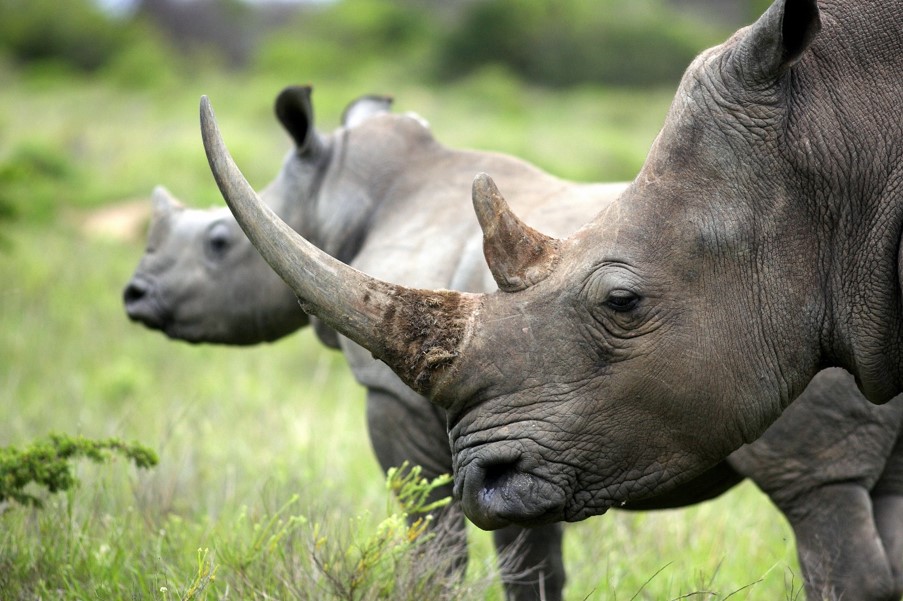So, you want to be a zookeeper or an aquarist? Let’s take a look at a Zookeeper job profile and find out what actually zookeepers do.
Zoos, Wildlife Centres and Safari parks are run by Zoological Societies, Charitable Trusts, Local Authorities, or operate as private enterprises. Zookeepers are responsible for the day-to-day care and welfare of animals kept in these environments. Their primary role is to ensure that these animals are kept physically and psychologically healthy.
Zookeepers need to be:
- Enthusiastic about animals
- Interested in animal biology
- Patient with both the public and animals
Keepers are involved in the management of zoo and aquarium animals. They carry out tasks such as 'mucking out', cleaning and filling water troughs, replenishing bedding and monitoring temperatures. They are responsible for checking enclosures and may carry out maintenance jobs such as repairing fences. Zookeepers order food and bedding and ensure animals are fed according to their individual needs. They weigh, chop and mix ingredients and may have to provide 'live food', such as locusts and mealworms, or 'dead feed' such as rats or mice.
Another important aspect of the work involves observing animals for any signs of injury or illness; if an animal is sick or injured, zookeepers help with the care under the direction of a vet. Zookeepers maintain healthcare records and as part of a research project, they may keep detailed records of an animal's activity or behaviour.
Keepers answer visitors’ questions and may give short talks or presentations. They may train animals for a demonstration, for example, training a bird to fly from one place to another. Keepers also make sure visitors do not feed or upset the animals or, particularly in wildlife parks, put themselves in danger by approaching animals too closely. In wildlife parks where animals live in conditions similar to the wild, Keepers will have less contact with the animals. In some cases, Keepers may be involved assisting with the design of new living quarters.
As confined animals are dependent on people to care for them, there is a need for staffing every day of the year. Keepers work on rota systems to cover all periods and more senior Keepers may be on a call-out rota, which could include evenings. Zookeepers may work outside or indoors, depending on the animals they care for. Conditions may be wet, cold, dirty, muddy, hot or humid. Keepers wear a uniform, normally an overall that is supplied by their employer.
Zookeepers aim to protect endangered species

With over one hundred million people visiting zoos every year, workers have an excellent opportunity to educate large numbers of people about the need for the conservation of wildlife and the importance of respecting animals. This responsibility assures a varied, interesting and rewarding career.
The world’s first zoo, the Zoological Society of London, was established in 1826 in Regents Park, London. The animals were housed in poorly constructed cages and concrete pits. However, nowadays, most zoos have more carefully considered habitats for the animals and many zoos have pioneered breeding programmes to prevent species from dying out.
Modern zoos have a far greater focus on conservation and animal welfare issues. The Zoological Federation of Great Britain estimates that twenty per cent of zoos actively participate in global conservation strategies for endangered species.
Zoos have changed purpose from existing purely for public entertainment to now ensuring that some endangered wild species have a chance of survival. As this emphasis on conservation increases, more zoos are employing specialist zoologists, conservation experts and ecologists.
Learn about becoming a Zookeeper
.jpg)
Animal Courses Direct has a wealth of information on a range of wildlife and zoo related careers. If you are unsure of the career path you want to take but know you want to work in a Zoo, then the Zoo Career Kickstarter course will help to introduce you to the different options available.
This short course on Working in the Zoo sector will give you an introduction to various career options such as:
- Zookeeper
- Safari Park Ranger
- Habitat Designer
- Veterinary Careers
During the course, you will have the opportunity to learn about the history and ethics of zoos and animal collections, enclosure design and enrichment, and an overview of zoo animals in the wild.
Learners will have the opportunity to explore the relevant courses available for working in the zoo sector. The course also looks at employability skills and the benefits of volunteering to gain experience. Once you have completed the course you will have the basic understanding needed to look for entry job opportunities in the zoo sector and consider further training and qualifications.
If you are considering Zookeeping as a career, then gaining experience is especially useful as competition for jobs can be fierce. It may be possible to start as a trainee at 16 but some employers set a minimum age of 18, especially if they are working with large animals such as elephants. Some people may be able to train on an Apprenticeship. In larger zoos, there are prospects of promotion to Senior Keeper and eventually to Head Keeper.
Experience can be gained by taking part in a volunteer programme or course. Ideally, the programme will offer practical experience in handling and caring for animals in different departments of the zoo.
The Level 3 Diploma in Zookeeping is an ideal step when you have decided on your career path.
This qualification explores how to put animal welfare as a priority whilst allowing for clear management techniques and the publics enjoyment of the zoo. There is a wide range of wild animals housed in zoos, ranging from reptiles, big cats, and endangered species including rhinos, primates, carnivores and many more. This course will give you a thorough basic knowledge and understanding of how to look after these amazing animals in captivity and how to conserve them for the future.
.jpg)
The course includes detailed learning on:
- Zoo animal care
- History of zoos
- Animal behaviour
- Animal classification
- Captive environmental enrichment & stress reduction
- Animal welfare in zoos
- Wildlife conservation
- Record keeping
- Zoo legislation (including a detailed discussion of the laws affecting zoo animals)
- Zoo habitat design
- Nutrition & feeding animals in captivity
- Animal handling
The course also includes 5 working days of practical training. This is a fantastic opportunity to gain experiential learning with a variety of species at this prestigious public Zoo. The practical training is tailored to each small group and can include:
- Enclosure design (including Project Elephant)
- Primates – with a focus on enrichment and diets
- Education (including conservation and sustainability)
- Animal training/behaviour (specifically elephant and sea lion)
- Reptiles, Invertebrates – with a focus on specialist care
- Zoo administration: Including ZIMs, EEPs, Studbook management, Zoo licensing
- Research – this includes allocated time for a personal project
- There will be direct contact with a number of key species including giraffes, penguins, prosimians, aardvarks, tapirs & sea lions

ZSL Fellowship
Our students who complete a wildlife, zookeeping or conservation course with us will be eligible to apply for a ZSL Fellowship. ZSL Fellows can get unlimited access for themselves and a family guest to ZSL London and Whipsnade Zoos plus borrowing rights in the extensive ZSL library of rare zoological texts.
If you would like more information on our courses that will help you work in a zoo, then speak to one of our Course Executives on 01202 006 040 or contact us online.
Also, if you adore animals, you can keep track of all upcoming animal awareness days and events with our FREE calendar! Download it here.
















